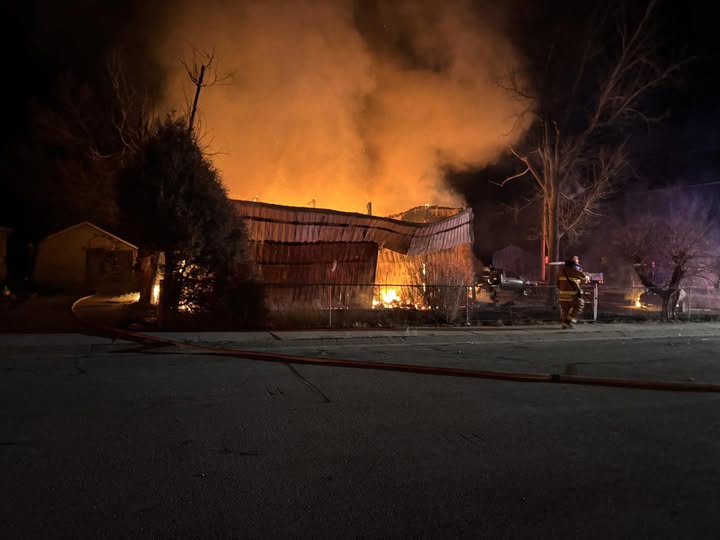PIERRE, S.D. – After legislators learned that Gov. Kristi Noem’s administration didn’t apply for a share of $1 billion in nationwide cybersecurity grants for county and city governments, one legislator suggested funding grants with state money.
The revelation about the state’s non-participation in the federal grant program emerged during a legislative summer study committee meeting on county funding earlier this month. The state refused about $5 million in fiscal year 2023 from the grant and will turn down even more funding in fiscal year 2024, a representative with the Department of Homeland Security told legislators. South Dakota and Florida are the only two states that haven’t applied for the federal funding.
“If we’re not going to accept the grant, then we’ll legislate an appropriation on a similar program and use South Dakota taxpayer money to do it instead, because it’s so important,” said Sen. Randy Deibert, R-Spearfish.
Deibert is the vice chair of the legislative summer study committee, a county commissioner for Lawrence County and serves on the board of the South Dakota Association of County Commissioners. Lawrence County wrote a letter to Noem’s office during her reelection campaign last year encouraging her to apply for the grant, Deibert said.
Local governments are commonly targeted for cybersecurity and ransomware attacks because they hold valuable personal information, said Jim Edman, DHS statewide coordinator, during the meeting. South Dakota local governments have paid “thousands or even hundreds of thousands of dollars to remediate the risk” to their IT networks, according to the South Dakota Public Assurance Alliance.
The federal grant makes $1 billion available to states over four years: $200 million was available last year, $400 million this year, $300 million in 2024 and $100 million in 2025.
“We are trying to answer the question, why in the world are we not participating in this?” said Rep. Roger Chase, R-Huron, and chair of the committee, during the meeting.
That’s because Noem doesn’t want to accept one-time federal funding that would establish long-term programs, said her spokesman Ian Fury.
States are required to have a cybersecurity plan when they receive the grant money and create a planning committee made up of officials from different industries.
The grant is an example of the federal government’s “wasteful spending,” Fury said to South Dakota Searchlight, adding that the spending is “oftentimes not the best solution to the problem it is seeking to solve.”
“Federal spending often comes with strings attached, and more of it is often not a good thing,” Fury said in an emailed statement. “These dollars would have required us to set up a new committee, create an ongoing program with one-time dollars (something we never do), and the administrative burden would have far exceeded the allowable administrative cost.”
The state would have to apply for the grant and then distribute 80% of the grant to local governments, with 20% staying with the state. The nationwide grant stems from the 2021 Infrastructure Investment and Jobs Act.
Legislators at the committee hearing discussed creating a centralized email system for local governments, similar to the state’s K-12 email system. The K-12 centralized email system gave local school districts and their teachers, administrators and students a standardized email with data backup. The annual operating cost for the system is slightly over $1 million for the center’s 130,000 users.
Currently, local governments select their own email platform and server — ranging from Yahoo to state email addresses.
Deibert also envisions having the state offer training to counties and city officials on phishing, spam and ransomware. Few counties offer such training to their employees.
He hopes raising public awareness about South Dakota’s inaction on the grant and passing legislation next session to create a program will convince Noem’s office to apply next year.
“If we pass a bill through both bodies and it’s on Noem’s desk,” Deibert said, “she’ll choose the lesser of two evils.”
This is not the first time Noem has refused federal funds. Most recently, South Dakota was one of four states that turned down the Climate Pollution Reduction Grant program, which would have provided state government with $3 million for planning and access to a $4.6 billion fund for implementation. She also turned down extended unemployment benefits from the Trump administration in 2020.
Story by: Makenzie Huber-SD Searchlight












